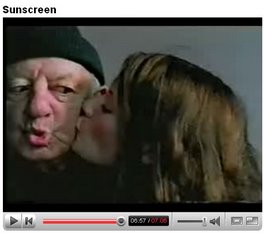This is the English version of the previous article published in this blog. As I am currently settled in London, carrying the attempt of communicating some of the spirit of this city (small part but, at least, better than nothing :)) and as communication involves language... to express myself with the tools of this society becomes necessary. Obviously, it will mean more difficulties... but here it goes!
"Know your rights"… were The Clash roaring in the early 80s. Following USA´s main steps, England led the conservative stance that was spreading through Europe since the second half of the previous decade. Margaret Thatcher had just taken her first sit in Downing Street and, thus, began the harsh mandate of the ‘Iron Lady’ that would last for eleven years, the longest among the contemporary democracies worldwide. In the foreign policy, Thatcher would sing alliance with his American homologue (in both senses, of position and attitude), Ronald Reagan, founder of neo liberalism and father of ultra capitalism.
Commercial aperture, globalization of enterprises and surge of huge corporations were the distinctive signs of those years. A period of decreasing borders for capital and cash, while heavily increasing those separating the rich and the poor, the ‘have-everything’ and the have-nots. Europe and North America signed alliance in this globalizing project previous to the end of Cold War, while the neighboring regions, mainly Africa and Latin America, signed their life sentence.
Underneath the regressive policy planned in the high spheres of power, an angered, disenchanted raft of society beat the tries of the contest, the furious attempt to blow up the balloon and stop a process nearly doomed to become irreversible. The hammer of this short but intense fight were the deafening sounds of a musical style, a consciously creaking esthetic, elements that wrapped up the thought and the stance of the still irreverent: PUNK.
 The Ramones, Sex Pistols, The Clash… were the founders of the wave that changed the anti-establishment action predominant in the USA during the 60s: the Hippy movement and the counterculture. Upon Punk spirit, that anti system discourse was already obsolete, maybe because it hadn’t adapted to the new ways of pressure and power, or maybe because, in case of the British Sex Pistols and The Clash, the harsh “British politeness” required another kind of pumping response.
The Ramones, Sex Pistols, The Clash… were the founders of the wave that changed the anti-establishment action predominant in the USA during the 60s: the Hippy movement and the counterculture. Upon Punk spirit, that anti system discourse was already obsolete, maybe because it hadn’t adapted to the new ways of pressure and power, or maybe because, in case of the British Sex Pistols and The Clash, the harsh “British politeness” required another kind of pumping response.Immersed in its out struggle, Spain absorbed the thrashes of Punk in the middle 70s and 80s. The death of Francisco Franco, “El Caudillo”, in 1975 put the end to the 40 years long dictatorship that had condemned the country to a cultural, economical and social ostracism. The new Constitution of 1978 settled the “consensus” compromise titled “Transition”. This established a silent commitment between the “two Spains” that had battled in the fratricide war and so, the ones previously confronted were from then on condemned to a mutual standing. Still nowadays, more than never, Spanish society is paying the rent of that contract that mutilates our present and our future.
"If it looks suspicious..."
Perhaps is this precise awareness of the lacks at home what makes the traveler look for the Punk´s birthplace with hope: the origin of unconformity, of subversion, must be a great stimulus and source of ideas to take back home.
Maybe, or maybe not… what would those who disowned Thatcher´s iron fist think about having their faces recorded 300 times per day? Because this is the average that an English citizen has its own image recorded every single day. England is the country with the highest level of surveillance in the world, with 4,2 millions of cameras spread through its streets, one per every 14 inhabitants.
In the English land, the obsession of security prevailing internationally is so embedded in common life that it´d easy to understand why its people don’t even realize it anymore. The daily social discourse is dominated by the reference to fear, even if disguised in the constant “politeness”. Official ads call you potential delinquent, but with correct words.
"If it looks suspicious, call the police, to the number...." Posters with this warning hang from the inner and outer walls in public transports and their stations. They invite us to stamp a distrusting stare at hour travel mate, to judge what “looks suspicious” and to take measures. You have acted accordingly; you have carried out your duty.
Civil patrols work to supply some neighborhoods with extra security. “They look like ‘bobbies’ (popular name given to metropolitan police), except from one insignia at the back of their jacket. They are civilians as you and me, with no more rights and powers than common people. And, yet, many don’t know this and accept their requests, as having their I.D registered, with no complains”, told me an English friend with a tone of astonishment and bitterness.
When observing these details, you can´t avoid thinking about that dystopian “Big Brother” that Orwell foreshadowed sixty years ago. Then, you shiver at the idea of England, the great birthplace of Punk outrage, as paradigm of the quick conversion of the World into an immense and unified crystal wall room.
“I fought the law and the law won”. As current echoes of the served prophecy, The Clash´s words resound in the 30th anniversary of its legendary album London Calling. In other world, maybe utopian, it should make us think. It should…


